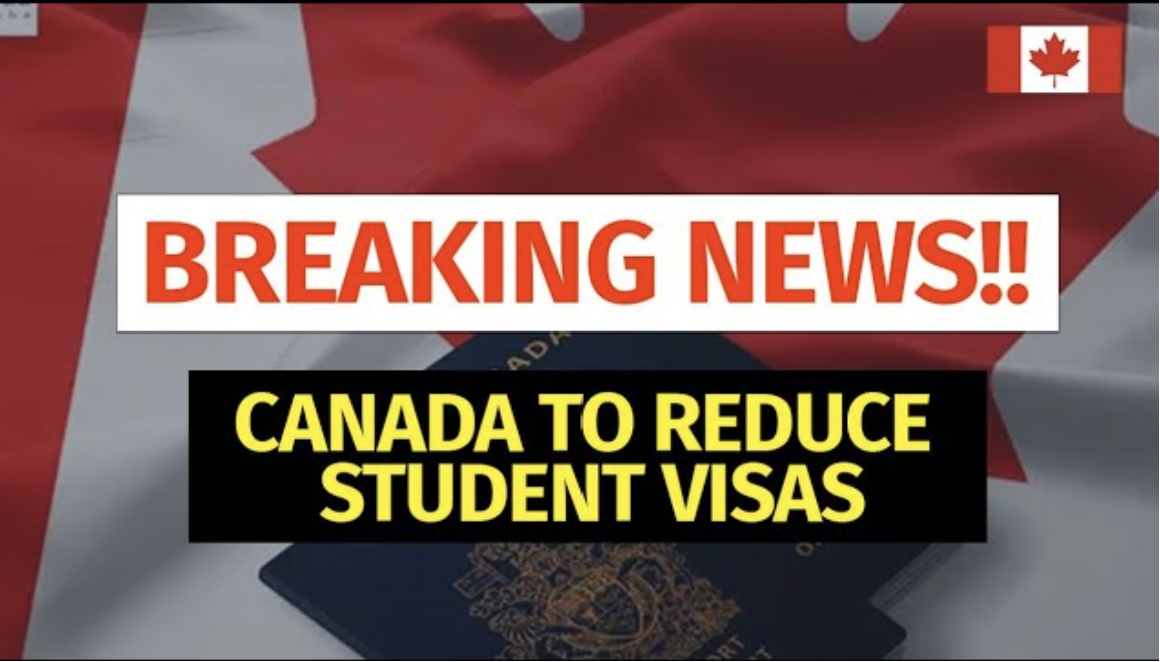In 2023, Canada's population increased by 1.25 million people, equivalent to 3.2%, marking the fastest growth rate since the late 1950s, with the majority coming from temporary residents such as students and seasonal workers. Specifically, the number of international students in 2023 surged to nearly 1 million, compared to only around 300,000 in 2013.
Canada is seen as a country dependent on immigration to drive economic growth amid an aging population. However, the rapid increase in immigration has led to a housing crisis and rising living costs as Canada has not adequately prepared infrastructure and financial resources to accommodate the sudden influx of immigrants, most of whom are temporary workers and international students. According to Statistics Canada, about 20% of international students with study visas do not have records of study at Canadian institutions.
To address this issue, on January 22, 2024, the Minister of Immigration, Refugees, and Citizenship Canada announced new measures to restrict and prevent the abuse of the international student visa program in the country.
Among the new measures, the most prominent is Canada's limitation on access to work permits for foreign students and their spouses to minimize the misuse of Canada's international education program.
In Canada, when a foreign individual with a family is enrolled in studies here, their spouses and even the students themselves are granted work permits to help them reduce living expenses during their studies. With the new policy, the criteria for issuing PGWP (Post-Graduation Work Permit) and OWP (Open Work Permit) have undergone significant changes.
1. Among the new measures, the most notable is Canada's restriction on access to work permits for foreign students and their spouses to minimize the misuse of Canada's international education program.
In Canada, when a foreign national with family is enrolled in studies here, both their spouses and the students themselves are granted work permits to help them reduce living expenses during their studies. With the new policy, the criteria for issuing PGWP (Post-Graduate Work Permit) and OWP (Open Work Permit) have undergone significant changes.
The Post-Graduate Work Permit Program criteria changes are as follows:
- Starting from September 1, 2024, international students entering programs under licensing agreements will no longer qualify for PGWP upon graduation. Programs under licensing agreements mean students enrolled in a private college/university that has been licensed to deliver a program of study from a public college/university (Public-private institution models - a form understood as a public institution delivering education on the premises of a private institution). These programs have seen significant growth in attracting international students in recent years, albeit with less supervision than public institutions, serving as a loophole to support PGWP applications post-graduation.
- Graduates of master's programs and other short-term post-undergraduate programs will be eligible for a 3-year work permit. Currently, PGWP duration is solely based on the individual's program duration, which may hinder master's graduates from accumulating experience and applying for permanent residency.
In the coming weeks, Open Work Permit will only be granted to spouses of international students enrolled in master's and doctoral programs. Spouses of international students in other academic levels, including undergraduate and college programs, will no longer qualify for this work permit.
The aforementioned measures are expected to be implemented from September 1st, also halting the issuance of post-graduation work permits for international students as it stands.
However, the stringent new measures by the Canadian government will not apply to individuals currently in the country seeking to extend their study permits.
2. Alongside the restriction on access to work permits, Canada aims to reduce the number of international students by about 35% in 2024, down to 364,000 applications.
The IRCC (Immigration, Refugees, and Citizenship Canada) will allocate a limit for each province and territory regarding the admission of international students, which will then be redistributed to designated learning institutions (DLIs). To commence the implementation of these limits, starting from January 22, 2024, all study permit applications submitted to IRCC will also require an attestation letter from a province or territory. Provinces and territories are expected to establish procedures for issuing attestation letters for students no later than March 31, 2024.
The restriction on study permits will only apply to college and university students, not to master's and doctoral students or those in secondary education (exempted with an Attestation Letter).
3. Previously, Canada had increased the financial proof requirement for each international student studying in Canada from 10,000 CAD (over 7,400 USD) to 20,635 CAD (15,181 USD) alongside tuition fees and travel expenses in the first year. This was done with the intention of providing some assurance to international students amidst the increasing cost of living in the country.
According to Canada's Minister of Immigration, Refugees, and Citizenship, Marc Miller, the implementation of restrictions on study permits is aimed at eliminating substandard educational institutions that exploit the international student program to increase enrollment and charge high tuition fees while infrastructure resources remain limited.
Ontario and British Columbia are estimated to be most affected by the new regulations as the majority of international students are concentrated in educational institutions in these two provinces, with rates of 50% and 20%, respectively.
The international student program is rapidly growing and has become a focal point amidst the proliferation of recruitment campaigns by post-secondary education programs. More immigrants are considering studying in Canada as a pathway to employment and permanent residency. The announced reforms reflect a comprehensive approach to safeguarding the integrity of Canada's international student program, promoting authentic student experiences, and addressing the increasing needs of our communities. Please feel free to reach out to us via email at info@canadafile.vn if you have any questions.



